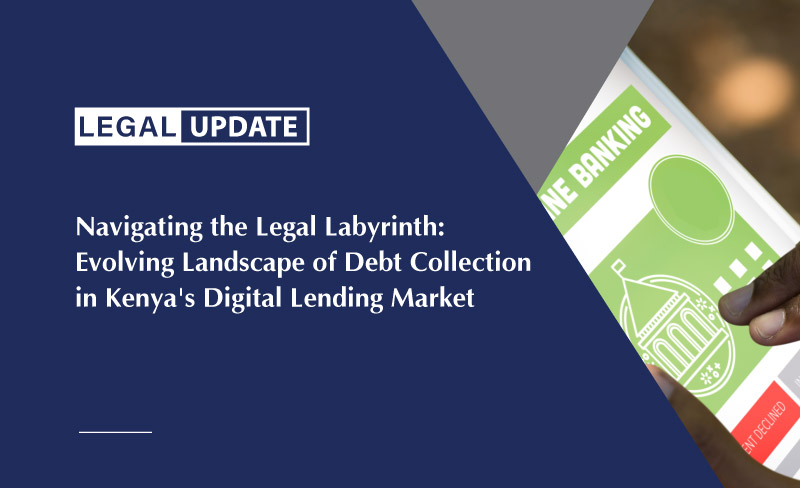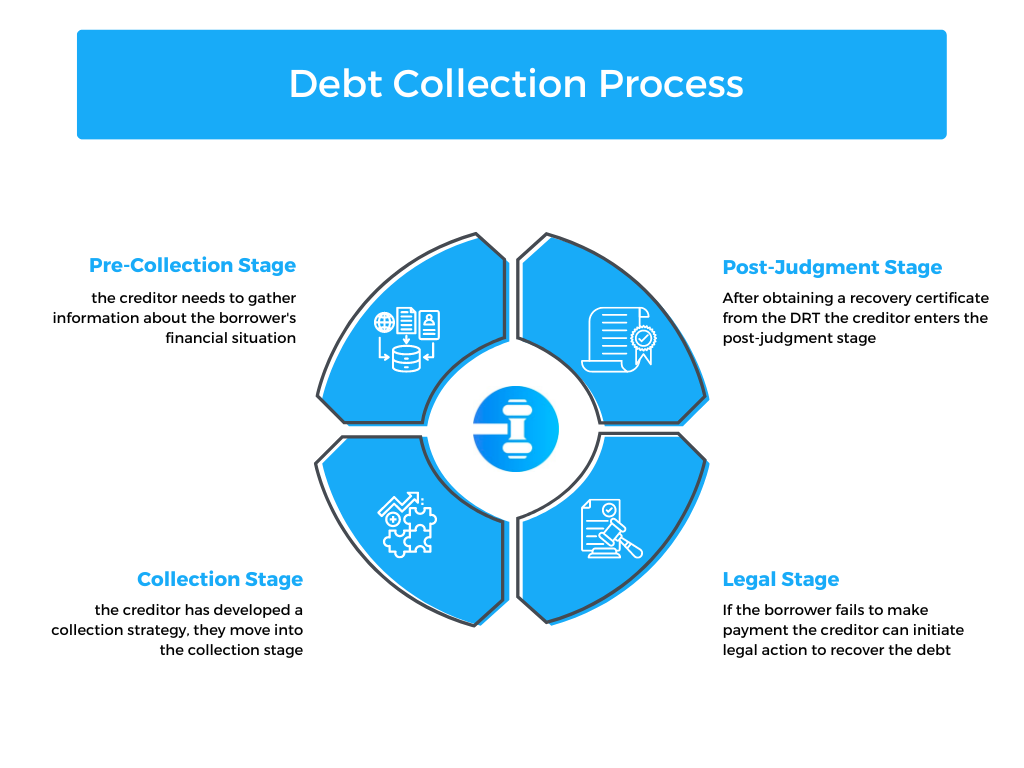Learn about the rights of debtors and creditors, legal procedures, and enforcement mechanisms.
So you're facing some issues with debt collection in Kenya and you're having trouble navigating the legal side of things?
Well, look no further because we've got you covered.
In this comprehensive guide, we'll break down the ins and outs of the debt collection laws in Kenya.
From understanding your rights as a debtor to the procedures followed by creditors, this article will provide you with the knowledge you need to tackle your debt issues confidently and effectively.
So buckle up and get ready to dive into the fascinating world of debt collection laws in Kenya.
Introduction
Overview of debt collection laws in Kenya
In Kenya, debt collection is a regulated process governed by a comprehensive set of laws and regulations.
These laws aim to protect the rights of both debtors and creditors and ensure fair and ethical practices in debt collection.
If you are a debtor or a creditor in Kenya, it is crucial to have a good understanding of these laws to navigate the debt collection process effectively and legally.
Legal Framework for Debt Collection
Constitution of Kenya
The Constitution of Kenya provides the fundamental legal framework for debt collection in the country.
It guarantees the right to fair administrative action, including the fair treatment of debtors.
Debt collection processes that violate the principles of fairness, equity, and due process can be challenged under the Constitution.
Bankruptcy Act
The Bankruptcy Act outlines the legal procedures and provisions for bankruptcy and insolvency proceedings in Kenya.
Under this Act, debtors who are unable to repay their debts can seek legal protection through bankruptcy, providing them with an opportunity to restructure their finances and repay their creditors in an orderly manner.
Insolvency Act
The Insolvency Act further supplements the provisions of the Bankruptcy Act by providing a comprehensive framework for dealing with insolvency cases in Kenya.
This Act governs the liquidation, administration, and reorganization of insolvent entities, ensuring a fair and transparent process for both debtors and creditors.
Civil Procedure Act
The Civil Procedure Act lays out the procedural rules and requirements for debt collection through court processes in Kenya.
It specifies the steps involved in initiating legal action against a debtor, including filing a suit, serving notice, and presenting evidence in court.
This Act ensures that debt collection cases are handled in a timely and efficient manner.
Debt Collection (Credit Reference Bureaus) Regulations
The Debt Collection (Credit Reference Bureaus) Regulations provide guidelines for the operation and regulation of credit reference bureaus in Kenya.
These bureaus play a crucial role in debt collection by collecting and storing credit information about individuals and businesses.
The regulations outline the obligations of credit reference bureaus in handling and sharing this information, ensuring privacy and accuracy.
.webp)
This image is property of assets-global.website-files.com.
Rights and Responsibilities of Debtors
Consumer protection rights
As a debtor in Kenya, you have several consumer protection rights.
These include the right to clear and accurate information about your debts, the right to dispute and seek clarification on any discrepancies, the right to privacy and confidentiality of your financial information, and the right to fair and respectful treatment from creditors and debt collectors.
Privacy rights
Debtors in Kenya are entitled to privacy rights regarding their financial information.
Creditors and debt collectors are required to handle this information confidentially and only use it for legitimate debt collection purposes.
Debtors have the right to request and verify the accuracy of their credit information held by credit reference bureaus and to dispute any incorrect or misleading information.
Responsibilities in debt repayment
Debtors also have responsibilities when it comes to debt repayment.
They are expected to honor their financial obligations and make timely payments as agreed upon with their creditors.
It is essential for debtors to communicate and negotiate with their creditors if they encounter financial difficulties that may affect their ability to repay debts.
Legal protection against harassment
Debtors in Kenya are protected by the law against harassment and abusive debt collection practices.
Creditors and debt collectors are prohibited from using threats, coercion, or intimidation to recover debts.
Any form of harassment, including incessant calls or visits, is strictly prohibited and can be reported to the relevant authorities for legal action.
Rights and Responsibilities of Creditors
Right to pursue debt collection
Creditors have the right to pursue debt collection when a debtor fails to fulfill their financial obligations.
This includes seeking repayments, negotiating new repayment terms, and taking legal action against the debtor if necessary.
However, creditors must exercise their rights within the bounds of the law and ensure compliance with debt collection laws and regulations.
Compliance with debt collection laws
Creditors have a legal responsibility to comply with debt collection laws in Kenya.
This includes following the proper procedures when notifying debtors about their debts, providing accurate information to credit reference bureaus, respecting debtors' privacy rights, and avoiding any illegal or unethical debt collection practices.
Failure to comply with these laws can result in penalties and legal repercussions.
Respecting debtor's rights
Creditors are obligated to respect the rights of debtors throughout the debt collection process.
This includes providing clear and accurate information about the debts, giving debtors an opportunity to dispute or verify the debts, and treating debtors with fairness and respect.
Creditors should refrain from harassment, coercion, or any form of unethical behavior when interacting with debtors.
Preventing illegal collection practices
Creditors have a responsibility to prevent illegal collection practices by their employees or third-party debt collectors.
This includes implementing internal policies and procedures to ensure compliance with debt collection laws, training staff members on ethical debt collection practices, and monitoring and auditing debt collection activities to identify and address any violations.

This image is property of cdn.uslegal.com.
Debt Collection Process
Notifying the debtor
The debt collection process usually begins with the creditor notifying the debtor about their outstanding debts.
This notification should be in writing and provide clear and accurate information about the debts, including the amount owed, the creditor's contact information, and any relevant payment deadlines or terms.
The debtor should receive this notification within a reasonable time frame to allow them to respond appropriately.
Validation of debt
Upon receiving the notification, the debtor has the right to validate the debt. This involves requesting detailed documentation and proof of the debt, such as invoices, loan agreements, or credit statements.
Creditors are required to provide this validation within a reasonable time and ensure that the information provided is accurate and relevant to the debt in question.
Negotiating repayment terms
Once the debt has been validated, debtors and creditors can engage in negotiations to establish suitable repayment terms.
This includes considering the debtor's financial situation, proposing realistic repayment plans, and reaching a mutually acceptable agreement. Effective communication and cooperation between both parties can often result in successful debt resolution and avoid the need for legal action.
Issuing legal notices
If negotiations fail or the debtor fails to fulfill the agreed-upon repayment terms, creditors may proceed with issuing legal notices.
These notices inform the debtor of their intention to take legal action if the debt remains unpaid within a specified period.
Legal notices should be issued in compliance with the Civil Procedure Act and serve as a final warning to the debtor before legal proceedings commence.
Legal action and court proceedings
If all other attempts to resolve the debt have been exhausted, creditors can resort to legal action through the court system.
This involves filing a lawsuit against the debtor, presenting evidence of the debt, and allowing the court to make a judgment.
Debtors have the right to defend themselves in court and present their case, ensuring a fair and impartial resolution.
Role of Debt Collection Agencies
Defining debt collection agency
A debt collection agency is a specialized entity that provides debt collection services on behalf of creditors.
These agencies can be hired to assist in the recovery of outstanding debts and may operate either as independent companies or as divisions of financial institutions.
Debt collection agencies often have extensive knowledge of debt collection laws and can navigate the process more efficiently.
Licensing and regulation
Debt collection agencies in Kenya are required to obtain the necessary licenses and registrations to operate legally.
This helps ensure that they meet specific standards and comply with debt collection laws and regulations. The licensing process involves rigorous scrutiny of the agency's operations, ethics, and financial stability to protect the interests of debtors and creditors alike.
Code of conduct for agencies
Debt collection agencies are bound by a code of conduct that outlines the ethical and professional standards they must adhere to.
This code of conduct prohibits the use of abusive or unfair debt collection practices, sets guidelines for communication with debtors, emphasizes the importance of privacy and confidentiality, and promotes transparency and fairness in debt collection activities.
Banning of unethical practices
Debt collection agencies in Kenya are strictly prohibited from engaging in unethical practices when collecting debts.
The law prohibits acts such as harassment, making false or misleading statements, misrepresenting the amount or status of the debt, or using deceptive or unfair means to collect debts.
Agencies found guilty of such practices can face severe penalties and even have their licenses revoked.

This image is property of wamaeallen.com.
Debt Collection and Credit Reporting
Role of credit reference bureaus
Credit reference bureaus play a significant role in debt collection by providing creditors and debt collectors with accurate and up-to-date credit information about debtors.
These bureaus collect and store data on individuals' creditworthiness, repayment history, and outstanding debts.
Credit reference bureaus help creditors assess the creditworthiness of potential borrowers and assist debt collectors in locating debtors and assessing their ability to repay debts.
Reporting and sharing of credit information
Credit reference bureaus in Kenya are required to report and share credit information responsibly and with the consent of the individuals involved.
Creditors provide information about their borrowers, including the status and repayment history of their loans or debts.
This information is then made available to other creditors and debt collectors to assess creditworthiness and make informed decisions regarding debt collection.
Maximum retention period of credit information
Credit reference bureaus are required to retain credit information for a specific period in Kenya.
The law sets a maximum retention period of five years for credit information, after which the information must be deleted from the bureau's database.
This time limit ensures that credit information remains relevant and accurate, preventing outdated or irrelevant data from negatively impacting individuals' creditworthiness in the long term.
Enforcement Mechanisms and Remedies
Debt collection through court processes
The court plays a crucial role in the enforcement of debt collection laws in Kenya.
Creditors can seek legal remedies through court processes to recover outstanding debts from debtors.
This includes filing a lawsuit, presenting evidence of the debt, and allowing the court to make a judgment that may involve ordering the debtor to repay the debt, issuing garnishee orders, or attaching the debtor's assets.
Issuing garnishee orders
Garnishee orders are a legal mechanism employed in debt collection to recover debts.
These orders allow the creditor to collect the debt directly from the debtor's wages, salary, or bank accounts.
Garnishee orders are issued by the court and require the debtor's employer or bank to deduct the specified amount from the debtor's earnings or deposits and remit it to the creditor.
Attachment of assets
In cases where debtors are unable to repay their debts, creditors can seek to recover the debt by attaching the debtor's assets.
This involves obtaining a court order to seize and sell assets belonging to the debtor to repay the outstanding debt.
The attachment of assets can apply to various types of property, including real estate, vehicles, or any other valuable assets that can satisfy the debt.
Bankruptcy and insolvency proceedings
In situations where debtors are overwhelmed by debt and unable to repay, they may seek legal protection through bankruptcy or insolvency proceedings.
Bankruptcy provides a mechanism for debtors to restructure their finances, protect their assets from seizure, and work towards repaying their debts in an orderly manner.
Insolvency proceedings offer similar protection and assistance to businesses facing financial distress.

This image is property of cedarfinancial.com.
Penalties for Violating Debt Collection Laws
Civil penalties
Violating debt collection laws in Kenya can result in civil penalties for both creditors and debt collection agencies.
These penalties may include fines, compensation to debtors for any harm or losses incurred, and court-ordered injunctions or orders to cease certain debt collection practices.
Civil penalties serve as a deterrent for illegal and unethical debt collection practices and aim to protect the rights of debtors.
Criminal penalties
In cases of egregious violations of debt collection laws, creditors or debt collection agencies may face criminal penalties.
These penalties can include fines, imprisonment, or both, depending on the severity of the offense. Criminal penalties are reserved for cases where debt collectors engage in fraudulent activities, deception, or harassment that causes significant harm or financial loss to debtors.
Compensation to debtors
Debtors who are subjected to illegal or unethical debt collection practices have the right to seek compensation for any harm, financial loss, or emotional distress they have suffered.
If a debtor successfully proves that they were subjected to unlawful or unfair debt collection practices, the court may award them compensation as a remedy.
This compensation aims to restore the debtor to the position they were in before the unfair debt collection occurred.
Conclusion
Summary of key points
Understanding debt collection laws in Kenya is crucial for both debtors and creditors.
The legal framework provides protections for debtors, including consumer protection rights and privacy rights, while also ensuring creditors have the right to pursue debt collection within the confines of the law.
The debt collection process involves notifying the debtor, validating the debt, negotiating repayment terms, and potentially resorting to legal action.
Debt collection agencies play a significant role in the process, but they must operate within the code of conduct and adhere to licensing requirements.
Credit reference bureaus assist in debt collection by providing credit information, while enforcement mechanisms and remedies ensure compliance and provide avenues for redress.
Violations of debt collection laws can result in penalties, both civil and criminal, and debtors may seek compensation for any harm suffered.
Importance of understanding debt collection laws in Kenya
Understanding debt collection laws in Kenya is essential for maintaining a fair and ethical debt collection process.
For debtors, having knowledge of their rights and responsibilities can protect them from harassment and ensure fair treatment.
For creditors, compliance with these laws not only avoids legal penalties but also fosters positive and professional relationships with their borrowers.
Additionally, an understanding of debt collection laws promotes transparency, accountability, and trust between all parties involved, leading to a more efficient and effective debt collection process in Kenya.

This image is property of legodesk.com.


0 Comments